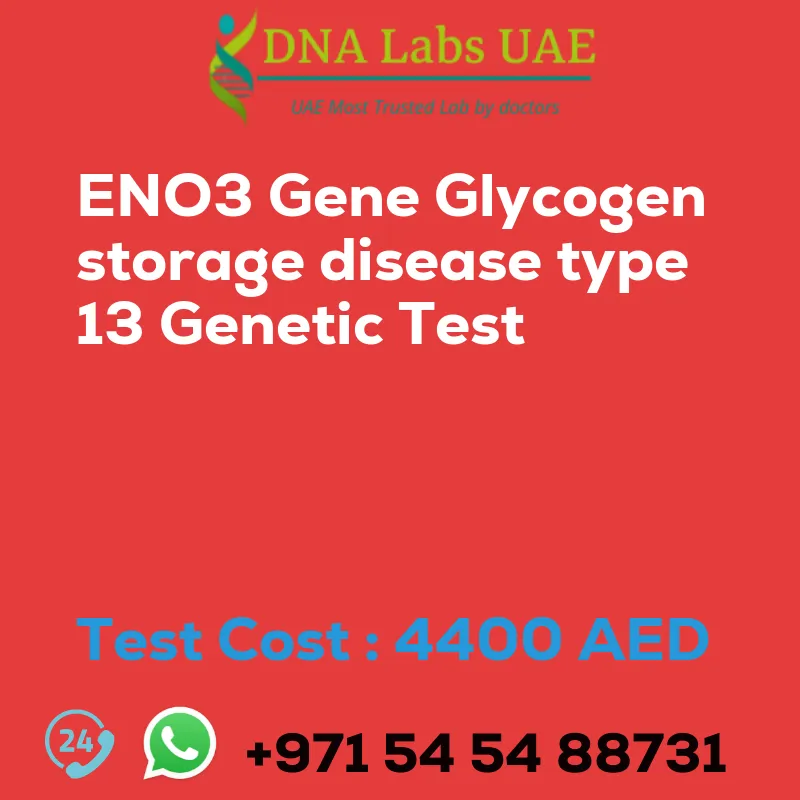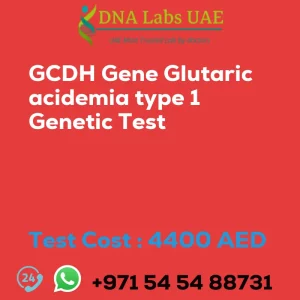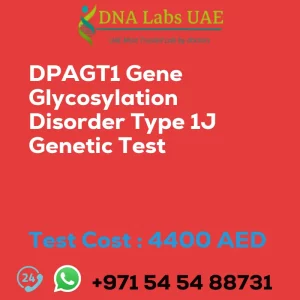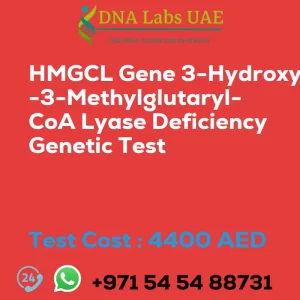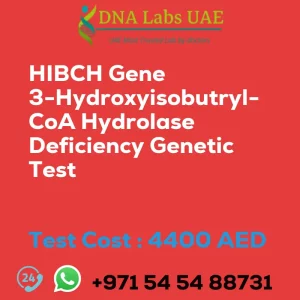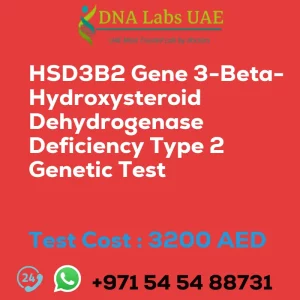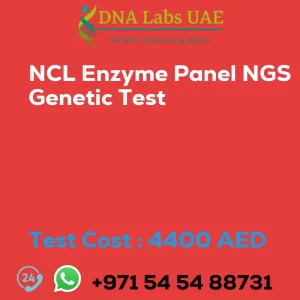ENO3 Gene Glycogen Storage Disease Type 13 Genetic Test
Test Name: ENO3 Gene Glycogen storage disease type 13 Genetic Test
Components: Blood or Extracted DNA or One drop Blood on FTA Card
Price: 4400.0 AED
Sample Condition: Blood or Extracted DNA or One drop Blood on FTA Card
Report Delivery: 3 to 4 Weeks
Method: NGS Technology
Test Type: Metabolic Disorders
Doctor: General Physician
Test Department: Genetics
Pre Test Information: Clinical History of Patient who is going for ENO3 Gene Glycogen storage disease type 13 NGS Genetic DNA Test. A Genetic Counselling session to draw a pedigree chart of family members affected with Glycogen storage disease type 13.
Test Details: The ENO3 gene is responsible for encoding the enzyme enolase 3, which plays a crucial role in glycolysis, the metabolic pathway that breaks down glucose to produce energy. Glycogen storage disease type 13 (GSD13) is a rare genetic disorder caused by mutations in the ENO3 gene. GSD13 is characterized by an inability to break down glycogen, a stored form of glucose, leading to the accumulation of glycogen in various tissues, particularly in the liver and muscles. This can result in symptoms such as muscle weakness, exercise intolerance, low blood sugar levels, and liver dysfunction. NGS (Next-Generation Sequencing) genetic testing is a method used to analyze the DNA sequence of an individual’s genes. It can identify mutations or variations in the ENO3 gene that may be responsible for GSD13. NGS technology allows for the simultaneous analysis of multiple genes or the entire exome (all the protein-coding regions of the genome) to provide a comprehensive assessment of genetic variants. Genetic testing for GSD13 can help confirm a diagnosis, identify carriers of the disease, and provide information for genetic counseling and family planning. It can also aid in the management and treatment of affected individuals by guiding personalized therapies and monitoring disease progression. It is important to consult with a healthcare professional or a genetic counselor to discuss the benefits, limitations, and potential risks associated with genetic testing before undergoing any testing procedure.
| Test Name | ENO3 Gene Glycogen storage disease type 13 Genetic Test |
|---|---|
| Components | |
| Price | 4400.0 AED |
| Sample Condition | Blood or Extracted DNA or One drop Blood on FTA Card |
| Report Delivery | 3 to 4 Weeks |
| Method | NGS Technology |
| Test type | Metabolic Disorders |
| Doctor | General Physician |
| Test Department: | Genetics |
| Pre Test Information | Clinical History of Patient who is going for ENO3 Gene Glycogen storage disease type 13 NGS Genetic DNA Test A Genetic Counselling session to draw a pedigree chart of family members affected with Glycogen storage disease type 13 |
| Test Details |
The ENO3 gene is responsible for encoding the enzyme enolase 3, which plays a crucial role in glycolysis, the metabolic pathway that breaks down glucose to produce energy. Glycogen storage disease type 13 (GSD13) is a rare genetic disorder caused by mutations in the ENO3 gene. GSD13 is characterized by an inability to break down glycogen, a stored form of glucose, leading to the accumulation of glycogen in various tissues, particularly in the liver and muscles. This can result in symptoms such as muscle weakness, exercise intolerance, low blood sugar levels, and liver dysfunction. NGS (Next-Generation Sequencing) genetic testing is a method used to analyze the DNA sequence of an individual’s genes. It can identify mutations or variations in the ENO3 gene that may be responsible for GSD13. NGS technology allows for the simultaneous analysis of multiple genes or the entire exome (all the protein-coding regions of the genome) to provide a comprehensive assessment of genetic variants. Genetic testing for GSD13 can help confirm a diagnosis, identify carriers of the disease, and provide information for genetic counseling and family planning. It can also aid in the management and treatment of affected individuals by guiding personalized therapies and monitoring disease progression. It is important to consult with a healthcare professional or a genetic counselor to discuss the benefits, limitations, and potential risks associated with genetic testing before undergoing any testing procedure. |

